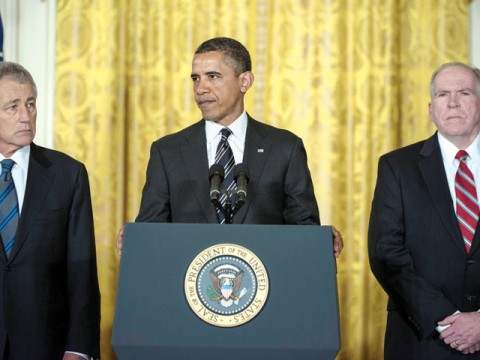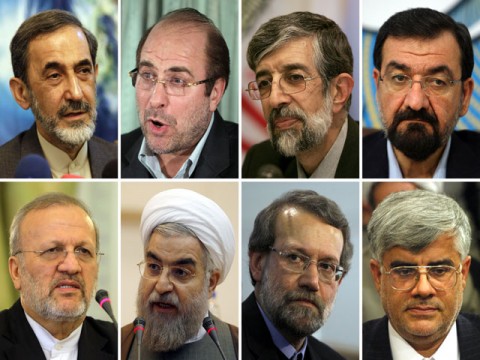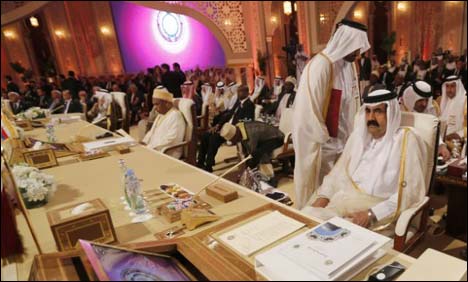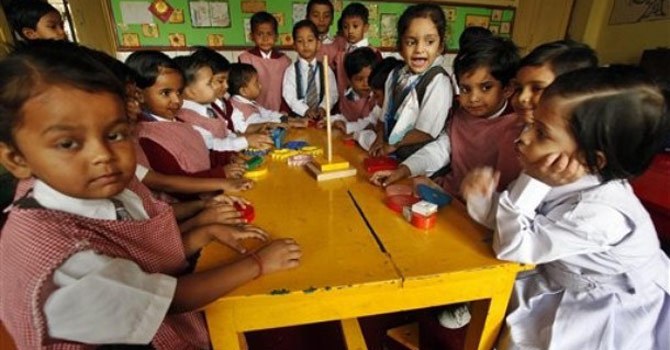- Web
- Humsa
- Videos
- Forum
- Q2A



What we are witnessing is the last, dying gasps of the Nasserite era. The ideological vision of Gamal Abdel Nasser, who led the 1952 revolution that overthrew Egypt's monarchy, has defined the last six decades of Egyptian politics: Arab nationalism, vehement anti-colonialism, the nationalisation of the country's economy, and the pre-eminence of the military are the foundation on which modern Egypt is built. While Nasserism was arguably successful in helping Egypt emerge from its political past, it has long been in slow decline - and is now on the verge of collapse.
The crumbling of the Mubarak regime two years ago momentarily wrenched Egypt's population out of a decades-old slumber. But today, many vestiges of Nasser's Egypt - key structures of state, society, and the economy - linger on. They are the creaking, dysfunctional machinery of a protectionist system still striving to shut out the forces of modernity and globalisation in order to preserve the vested interests of an elite few.
Egypt's insidious state security establishment is a prime example of the country's unfinished revolution. The Jan 25 protests proved to be the watershed moment when - for all its networks of informants, secret police officers, and legions of thugs - it had no answer to modern technology, digital media, and mobile communications. While describing the uprising as a "Facebook Revolution" remains misleading, protesters understood how their technological advantages enabled them to outmanoeuvre a clumsy and brutal security apparatus. Two years on, however, the Interior Ministry remains unreformed, the scars of years of brutalisation of Egyptian society are yet to be healed, and civilian law enforcement faces an undetermined future.
Depressingly then, though no less predictably, the Muslim Brotherhood has quickly revealed itself as representing a continuation of this broken system. President Mohamed Mursi has shown himself as eager to maintain an authoritarian stranglehold over the political process as his predecessor, unilaterally issuing a declaration that granted him far-reaching powers and ramming through a new constitution on short notice. In another sinister echo of the old regime, the Brotherhood is now employing its own armed thugs to violently confront protesters, as seen in the December 2012 clashes outside the presidential palace.
Meanwhile, despite Mursi's house cleaning of the military's senior leadership last August, critical aspects of the country's controversial new constitution leave the uniformed establishment's independence from civilian oversight and autonomy over its own opaque affairs intact. Key clauses have kept the military's vast budget away from parliamentary view and formally sanctioned the use of military trials for civilians. It is difficult to envisage how the country can genuinely move into a new era while the military, representing the immovable institutional foundation of Nasser's Egypt, continues to dominate the country's commanding heights.
The decay of Egypt's education system provides a window into the slow collapse of Nasserite Egypt. In the years following the July 1952 revolution, the barely existent public education system underwent an exponential expansion: By the mid-1970s, the education budget represented more than 25 per cent of the government's total expenditure, while spending on school construction increased by 1,000 per cent. During the same period, overall school enrolment grew by a staggering 400 per cent.
This early commitment, however, faltered long ago. Nowadays, education spending represents a pitifully small portion of the public budget, more than 80 per cent of which goes to pay bureaucrats' salaries. Primary school classes of up to 60 children are taught in multiple daily shifts, while education relies on rote memorisation, stifling intellectual curiosity and creativity.
The failure of Egypt's education system has a dramatic political impact. Egypt's leaders have cynically created factories that produce unimaginative, uninquisitive recruits for their vast military and civil service bureaucracies. The intellectual class, whose efforts initially helped to conjure Nasser's Egypt into existence, has increasingly been squeezed and hounded into silence by a paranoid regime that hears whispers of dissent at every turn.
The struggle of secular liberals to find their feet in the last two years is an indirect consequence of Egypt's intellectual rut. The result of Egypt's decaying academic institutions is an absence of ideas and a near-total lack of political vision. It is telling that Mohammad ElBaradei, arguably the most prominent member of the secular-liberal opposition, spent almost his entire career outside of the country.
Meanwhile, a parallel deterioration in Egypt's mainstream religious institutions - most notably Al Azhar University, which was once the preeminent global seat of Islamic learning - has paved the way for the rise of foreign Islamist ideologies. Egyptian politics has not only become less secular, but Islamist politics has become more radical and less inherently "Egyptian."
The limping legacy of the Nasserist state is also evidenced in Egypt's bloated public sector. Poorly functioning government departments and sluggish bureaucracy have come to epitomize for many the ailing nature of an ossified state, and the burden of public sector salaries on a near bankrupt economic system cannot endure forever. Meanwhile, the gulf in professional standards between Egypt's introverted public sector and an increasingly globalized commercial business community grows greater by the day.
Nasser's seismic nationalisation policies have unintentionally granted his successors a handy mechanism of exerting power and influence through the gradual redistribution of the nation's wealth to a small clique surrounding the ruling establishment. The startling disparities of wealth within Egypt represent a cruel and dangerous paradox: According to World Bank statistics, 20 per cent of Egyptians live below the poverty line.
Yet even as Egypt teeters on the edge of economic cataclysm, any efforts toward a redistribution of wealth and resources, or alterations to its inequitable system of fuel and food subsidies, have so far remained half-hearted. Political forces have buckled to domestic political expediency, so far resisting the IMF's warnings that reforms of taxes, subsidies, and the public budget are prerequisites for Egypt to receive its $4.8 billion assistance package.
On the two-year anniversary of the revolution, solutions to Egypt's crisis of modernity are hard to come by. Mursi's intrinsically conservative government appears just as authoritarian as its predecessors, and the opposition has failed to build a political organization or define its agenda. Meanwhile, the retrograde visions of the radical Islamist opposition threaten to pull Egypt even further from the modern world.
Despite their differences, the diverse political forces in Cairo all hold to a misguided notion that Egypt's main challenges are relatively fixable, superficial abuses - not fundamental issues related to the broken structures of their state and society. Two years ago, demonstrations against the established hierarchy sparked protests from almost every corner of the country - from schools, to hospitals, places of work, and even within families. These pressures will continue to represent an existential threat to Egypt's political elite.
The 18 days that brought down Mubarak demonstrated that Egypt is capable of achieving the unthinkable. Today, more of the honesty, courage, and soul-searching that stirred the public's imagination during those days will be required to bring an end to the old, dying political order in Cairo.
–Foreign Policy
 US President Barack Obama Monday nominated his counterterrorism adviser John Brennan as CIA director, and Chuck Hagel, a former maverick Republican senator, as defence secretary. Brennan’s choice as head of Central Intelligence Agency, came two months after David Petraeus stepped down admitting an extramarital affair.
The president, ..... Read more
US President Barack Obama Monday nominated his counterterrorism adviser John Brennan as CIA director, and Chuck Hagel, a former maverick Republican senator, as defence secretary. Brennan’s choice as head of Central Intelligence Agency, came two months after David Petraeus stepped down admitting an extramarital affair.
The president, ..... Read more
 With just 100 days to go until a presidential election in Iran, both conservative heavyweights and reformists weakened after the controversial 2009 poll are keeping their cards close to their chests.
The June 14 election will be followed closely in the West four years after Mahmoud Ahmadinejad’s re-election for a second term sparked a wave of violen..... Read more
With just 100 days to go until a presidential election in Iran, both conservative heavyweights and reformists weakened after the controversial 2009 poll are keeping their cards close to their chests.
The June 14 election will be followed closely in the West four years after Mahmoud Ahmadinejad’s re-election for a second term sparked a wave of violen..... Read more
 Opposition chief Ahmed Moaz al-Khatib took Syria's seat at the Arab League on Tuesday as leaders gathered for the annual summit in Doha gave member states the "right" to arm rebels in the war-torn country.
The summit affirmed the "right of every state to offer all forms of self-defence, including military, to support the resistance of the..... Read more
Opposition chief Ahmed Moaz al-Khatib took Syria's seat at the Arab League on Tuesday as leaders gathered for the annual summit in Doha gave member states the "right" to arm rebels in the war-torn country.
The summit affirmed the "right of every state to offer all forms of self-defence, including military, to support the resistance of the..... Read more












 Clean Chit (Faisal Raza Abidi ...
Clean Chit (Faisal Raza Abidi ...  Akhir Kiyon - 16th December 2...
Akhir Kiyon - 16th December 2...  To The Point - 16th December ...
To The Point - 16th December ...  Capital Talk â
Capital Talk â  Kal Tak - 16th December 2013
Kal Tak - 16th December 2013  Bay Laag - 16th December 2013
Bay Laag - 16th December 2013  Kharra Sach - 16th December 2...
Kharra Sach - 16th December 2...  Awaam - 15th December 2013
Awaam - 15th December 2013 





 Gold Miner
Gold Miner  Superbike GP
Superbike GP  Whipsaw Fighter
Whipsaw Fighter  PacMan
PacMan 


